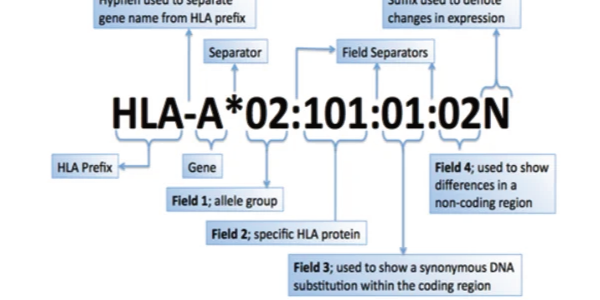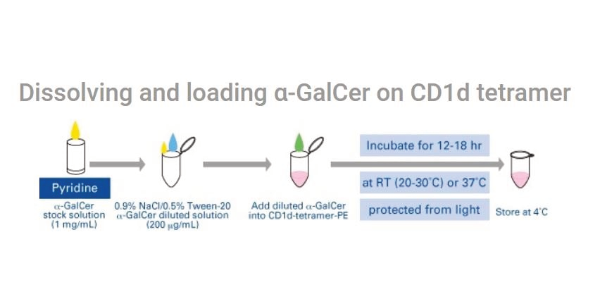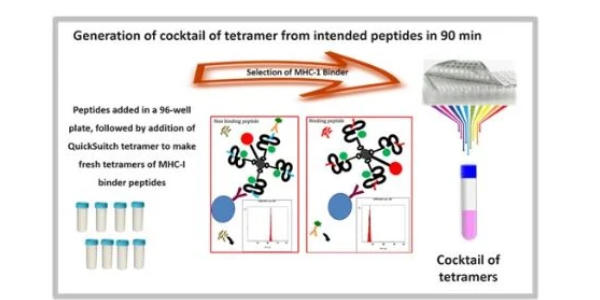immunAware provide MHC monomers and tetramers for peptide-Class I, peptide-Class II and custom epitopes.
Peptide-MHC monomers and tetramers


immunAware provide MHC monomers and tetramers for peptide-Class I, peptide-Class II and custom epitopes.

All the analytical tools you need for your research: in vivo products, tetramers, ELISAs, small molecules & proteins (RUO & GMP)!
Non-classical Major Histocompatibility Complex (MHC) molecules are non-polymorphic proteins implicated in both innate and adaptive immune responses.1,2 While classical MHCs present antigens to CD8+/CD4+ cells for further immune processing, non-classical MHCs also mediate activation or inhibition in natural killer (NK) cells.3 MBL
T cell receptors (TCRs) expressed on the surface of T cells specifically recognise and bind to complexes of major histocompatibility complex (MHC) molecules and peptide fragments expressed on the surface of antigen-presenting cells. CD8+ T cells, also called cytotoxic T

The human leukocyte antigen system, aka human major histocompatibility complex, was named after its discovery with alloantibodies against leukocytes.

MBL International offers CD1d tetramers prepared by tetramerisation of complexes of CD1d and β2m by PE- or APC- labelled streptavidin.

The process of T cell exhaustion & how it can be harnessed for immuno-oncology drug discovery and for immune checkpoint screening of drug candidates.
In a previous blog post (How to screen SARS-CoV-2 peptides to facilitate T cell research) MBL International described how the immune system samples all of the pathogenic proteins by looking at the small fragments of each protein and determining whether that
In a previous blog post (How to screen SARS-CoV-2 peptides to facilitate T cell research), MBL International describes how the immune system samples all of the pathogenic proteins by looking at the small fragments of each protein and determining whether
In a previous blog post (How to screen SARS-CoV-2 peptides to facilitate T cell research) MBL International described how the immune system samples all of the pathogenic proteins by looking at the small fragments of each protein and determining whether